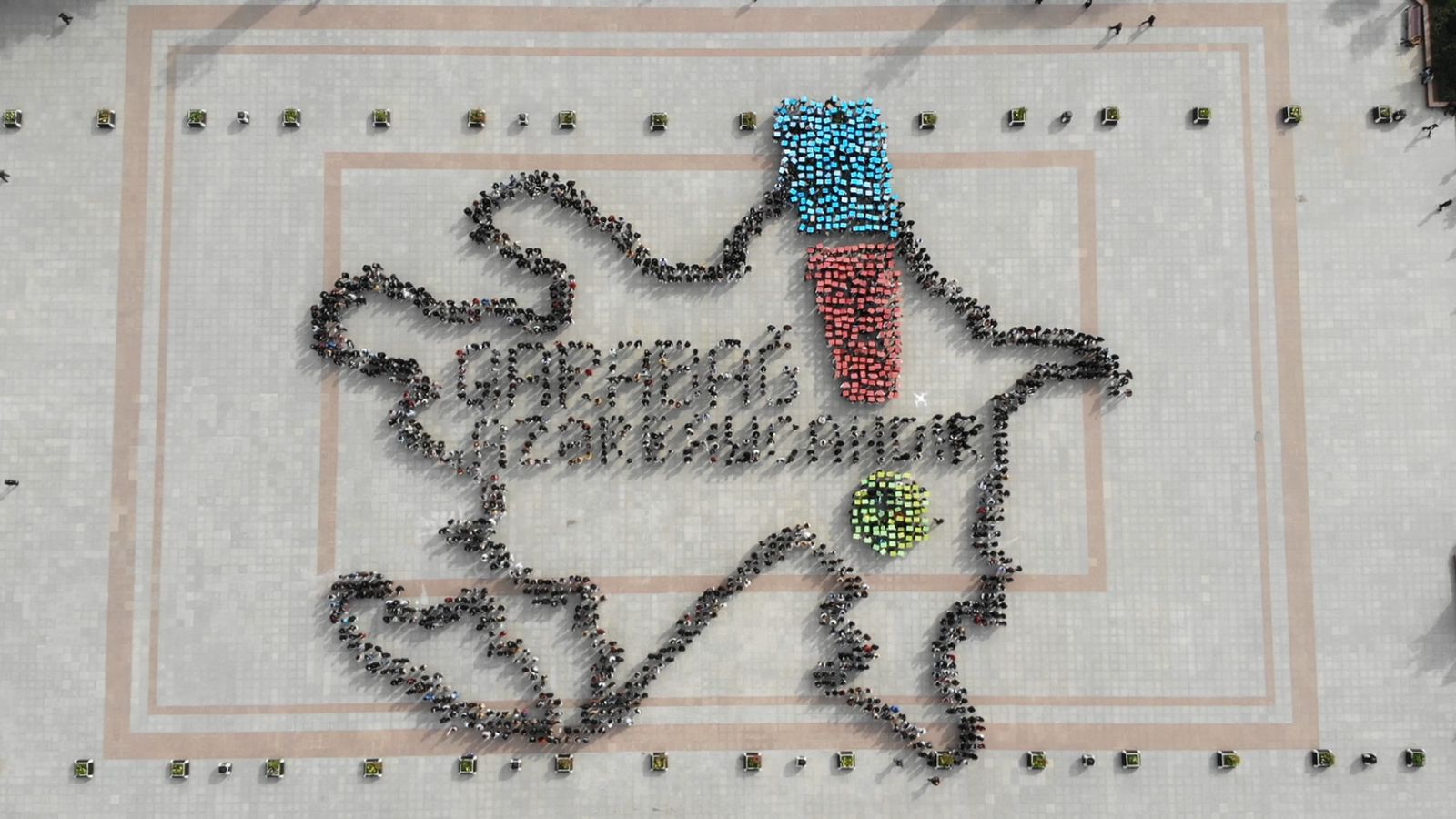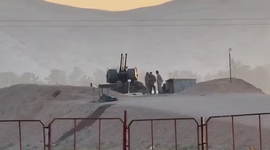Members of the Armenian parliament, joined by the country’s former president, have whipped up separatist sentiment against Azerbaijan in a mass anti-government gathering in Armenia’s capital city of Yerevan on Tuesday.
Organizers of the rally — the parliamentary factions "Hayastan" and "I have the honor" — urged Armenians to unite in the “protection” of the so-called “Artsakh,” the internationally-recognized Karabakh (Garabagh) region of Azerbaijan where a partial Armenian population lives.
Opposition supporters blame the Armenian government for alleged territorial concessions and demand the recognition of Azerbaijan's territories partially populated by ethnic Armenians as an “independent state”.
Armenia and Azerbaijan had been locked in a decades-old armed conflict over the latter’s Karabakh (Garabagh) region. Following the Soviet Union’s dissolution in 1991, Armenia launched full-blown military aggression against Azerbaijan, marking the longest and deadliest war in the South Caucasus region. The bloody war ended with a ceasefire in 1994, which saw Armenia forcibly occupying 20 percent of Azerbaijan’s internationally recognized territories. Over 30,000 Azerbaijanis were killed, 3,890 went missing, and one million others were expelled from those lands in a brutal ethnic cleansing policy conducted by Armenia.
Armenia's authorities have changed the name of the Karabakh region and adjacent territories with self-designed names and deployed separatists there in order to bolster their illegal claim to the region.
On September 27, 2020, the Armenia-Azerbaijan conflict took a violent turn when Armenian forces deployed in occupied Azerbaijani lands shelled military positions and civilian settlements of Azerbaijan. During counter-attack operations that lasted 44 days, Azerbaijani forces liberated over 300 settlements, including the cities of Jabrayil, Fuzuli, Zangilan, Gubadli, and Shusha, from a nearly 30-year-long illegal Armenian occupation. The war ended with the signing of a tripartite statement by Armenia, Azerbaijan, and Russia on November 10, 2020. Under the agreement, Armenia also returned the occupied Aghdam, Kalbajar, and Lachin districts to Azerbaijan.
New realities have surfaced in the South Caucasus region following Azerbaijan’s victory in the Second Karabakh War. Authorities of Azerbaijan have been calling on Armenian government to start working on post-conflict regional issues, including negotiations on a peace treaty and the unblocking of communications.
Baku has submitted a proposal containing basic principles for the normalization of relations with Yerevan in March 2022. The five basic principles of the proposal submitted to the Armenian side are as follows:
- Mutual recognition of respect for the sovereignty, territorial integrity, inviolability of internationally recognized borders and political independence of each other;
- Mutual confirmation of the absence of territorial claims against each other and acceptance of legally binding obligations not to raise such a claim in future;
- Obligation to refrain in their inter-State relations from undermining the security of each other, from threat or use of force both against political independence and territorial integrity, and in any other manner inconsistent with the Purposes of the UN Charter;
- Delimitation and demarcation of the state border, and establishment of the diplomatic relations;
- Unblocking of the transportation and other communications, building other communications as appropriate, and establishment of cooperation in other fields of mutual interest.
The Armenian parliamentarians who organized the protest in Yerevan on April 5 are pressuring their government to not accept the principles introduced by Azerbaijan. They have expressed opposition to the signing of any interstate agreements and any process of delimitation and demarcation with Baku.
On his part, Baku-based political analyst Jeyhun Ahmadli said that such a protest rally taking place shortly before the meeting of the Armenian and Azerbaijani leaders in Brussels shows how revanchist circles in Armenia are trying to dissuade Prime Minister Pashinyan from signing a possible peace treaty with Azerbaijan.
“The [peace treaty] conditions proposed by Azerbaijan are already known to the Armenian public. The key point for revanchists is that if a peace process starts, they will become political corpses,” Ahmadli was quoted as saying by Trend.







 Russian peacekeeping forces, deployed in the Karabakh (Garabagh) region of Azerbaijan since 2020, have commenced their withdrawal from the area.
Russian peacekeeping forces, deployed in the Karabakh (Garabagh) region of Azerbaijan since 2020, have commenced their withdrawal from the area.
 Azerbaijan officially unveiled the logo for the upcoming 29th session of the Conference of the Parties to the United Nations Framework Convention o...
Azerbaijan officially unveiled the logo for the upcoming 29th session of the Conference of the Parties to the United Nations Framework Convention o...
 The Kazakh authorities have increased their arbitration claims against international oil companies involved in the development of the Kashagan oil ...
The Kazakh authorities have increased their arbitration claims against international oil companies involved in the development of the Kashagan oil ...



